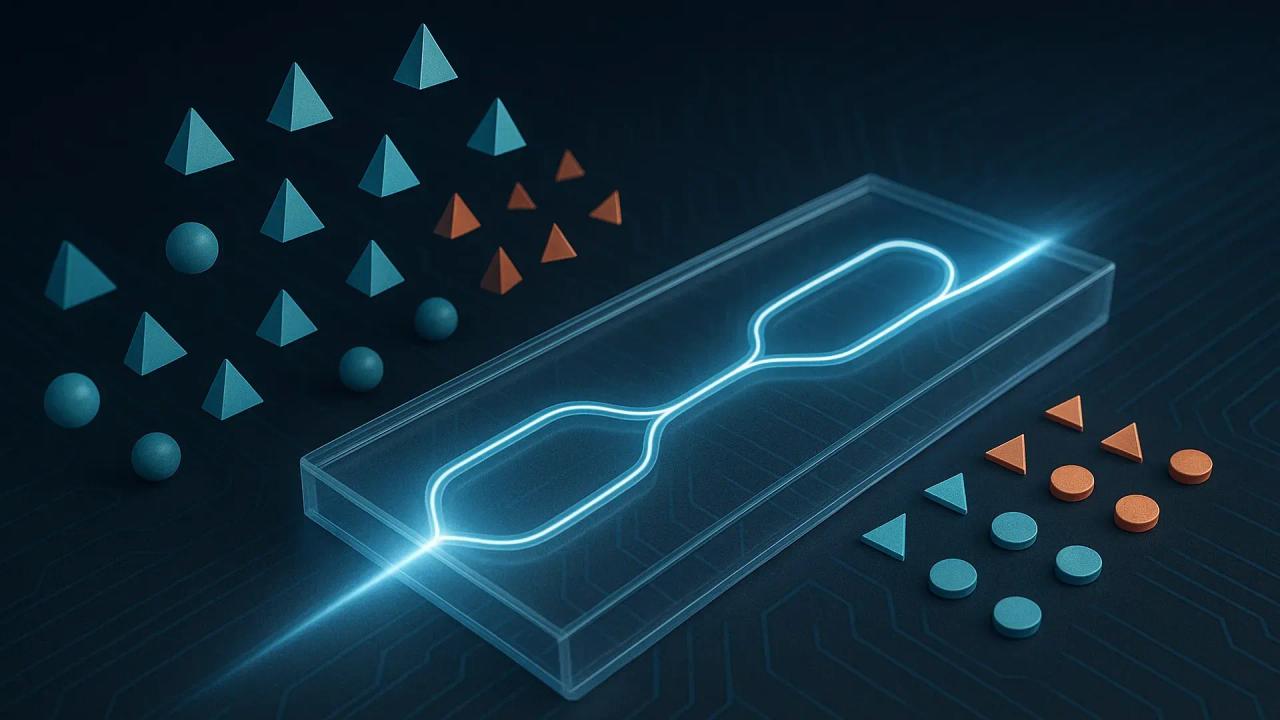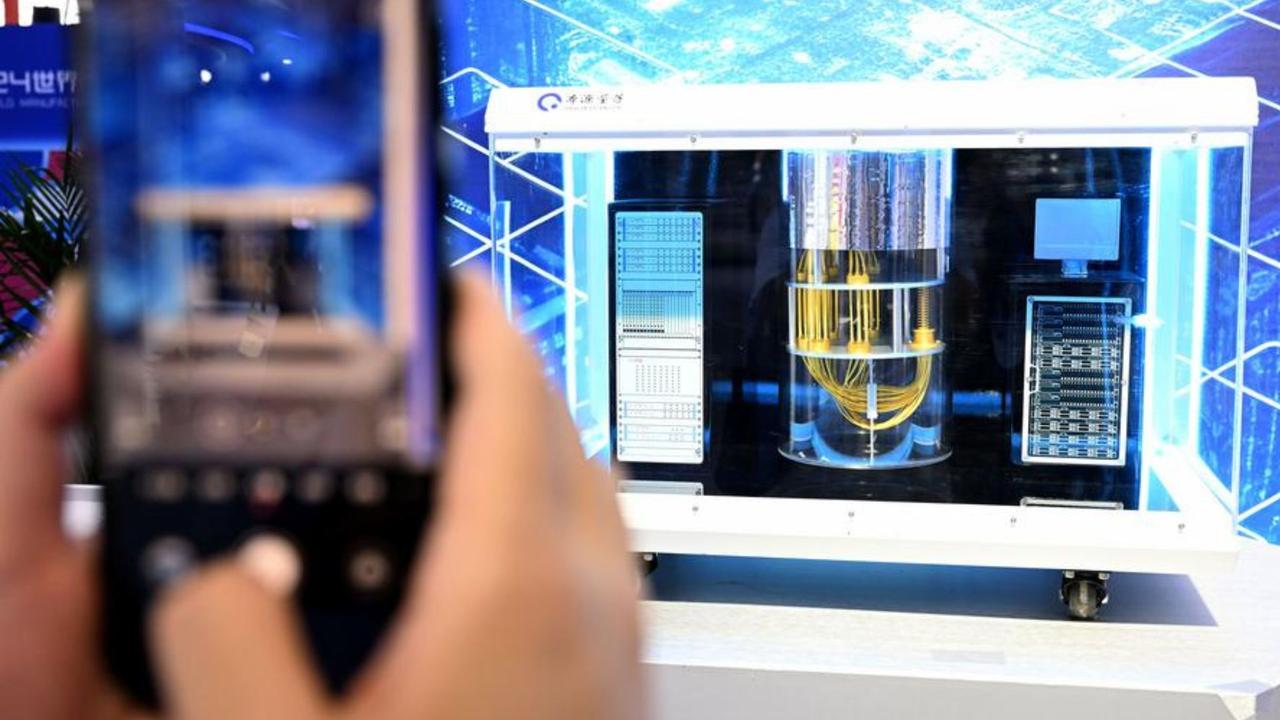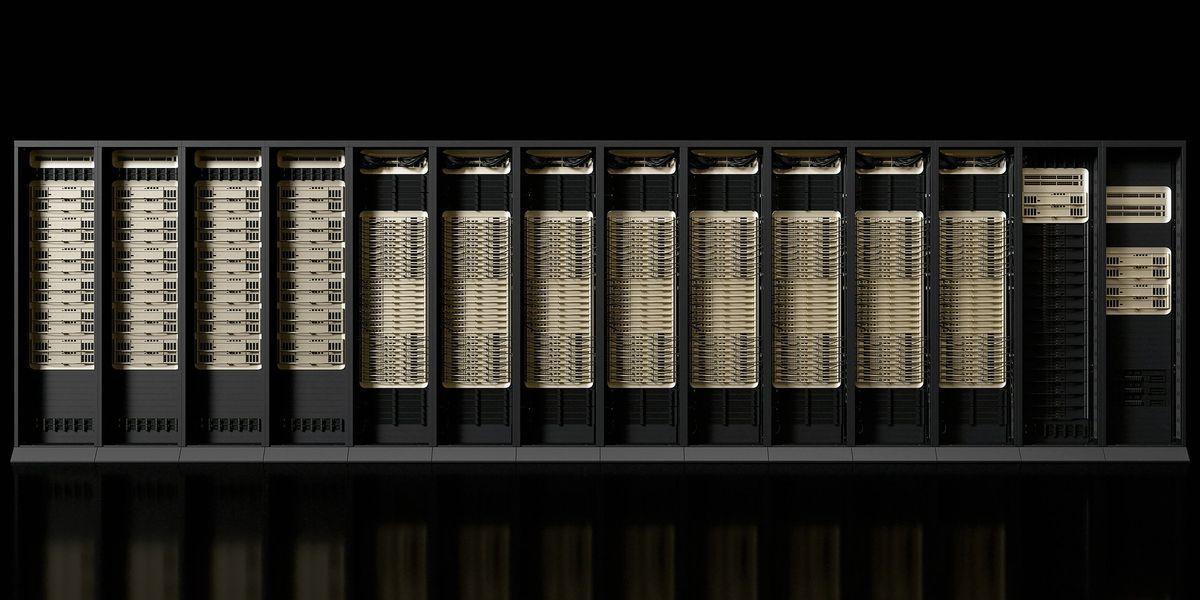Quantum Photonic Chip Outperforms Classical AI in Accuracy and Energy Efficiency
3 Sources
3 Sources
[1]
Photonic quantum chips are making AI smarter and greener
Recent scientific breakthroughs have reshaped the development of future technologies. On the one hand, machine learning and artificial intelligence have already revolutionized our lives from everyday tasks to scientific research. On the other hand, quantum computing has emerged as a new paradigm of computation. From the combination of these promising two fields, a new research line has opened up: Quantum Machine Learning. This field aims at finding potential enhancements in the speed, efficiency or accuracy of algorithms when they run on quantum platforms. It is however still an open challenge, to achieve such an advantage on current technology quantum computers. This is where an international team of researchers took the next step and designed a novel experiment carried out by scientists from the University of Vienna. The set-up features a quantum photonic circuit built at the Politecnico di Milano (Italy), which runs a machine learning algorithm first proposed by researchers working at Quantinuum (United Kingdom). The goal was to classify data points using a photonic quantum computer and single out the contribution of quantum effects, to understand the advantage with respect to classical computers. The experiment showed that already small-sized quantum processors can peform better than conventional algorithms. "We found that for specific tasks our algorithm commits fewer errors than its classical Counterpart," explains Philip Walther from the University of Vienna, lead of the project. "This implies that existing quantum computers can show good performances without necessarily going beyond the state-of-the-art Technology" adds Zhenghao Yin, first author of the publication in Nature Photonics. Another interesting aspect of the new research is that photonic platforms can consume less energy with respect to standard computers. "This could prove crucial in the future, given that machine learning algorithms are becoming infeasible, due to the too high energy demands," emphasizes co-author Iris Agresti. The result of the researchers has an impact both on quantum computation, since it identifies tasks that benefit from quantum effects, as well as on standard computing. Indeed, new algorithms, inspired by quantum architectures could be designed, reaching better performances and reducing energy consumption.
[2]
Quantum machine learning: Small-scale photonic quantum processor can already outperform classical counterparts
One of the current hot research topics is the combination of two of the most recent technological breakthroughs: machine learning and quantum computing. An experimental study shows that already small-scale quantum computers can boost the performance of machine learning algorithms. This was demonstrated on a photonic quantum processor by an international team of researchers at the University of Vienna. The work, published in Nature Photonics, shows promising new applications for optical quantum computers. Recent scientific breakthroughs have reshaped the development of future technologies. On the one hand, machine learning and artificial intelligence have already revolutionized our lives from everyday tasks to scientific research. On the other hand, quantum computing has emerged as a new paradigm of computation. From the combination of these promising two fields, a new research line has opened up: Quantum Machine Learning. This field aims at finding potential enhancements in the speed, efficiency or accuracy of algorithms when they run on quantum platforms. It is, however, still an open challenge to achieve such an advantage on current technology quantum computers. This is where an international team of researchers took the next step and designed a novel experiment carried out by scientists from the University of Vienna. The set-up features a quantum photonic circuit built at the Politecnico di Milano (Italy), which runs a machine learning algorithm first proposed by researchers working at Quantinuum (United Kingdom). The goal was to classify data points using a photonic quantum computer and single out the contribution of quantum effects, to understand the advantage with respect to classical computers. The experiment showed that already small-sized quantum processors can perform better than conventional algorithms. "We found that for specific tasks our algorithm commits fewer errors than its classical counterpart," explains Philip Walther from the University of Vienna, lead of the project. "This implies that existing quantum computers can show good performances without necessarily going beyond the state-of-the-art technology," adds Zhenghao Yin, first author of the publication in Nature Photonics. Another interesting aspect of the new research is that photonic platforms can consume less energy with respect to standard computers. "This could prove crucial in the future, given that machine learning algorithms are becoming infeasible, due to the too high energy demands," emphasizes co-author Iris Agresti. The result of the researchers has an impact both on quantum computation, since it identifies tasks that benefit from quantum effects, as well as on standard computing. Indeed, new algorithms, inspired by quantum architectures, could be designed, reaching better performances and reducing energy consumption.
[3]
Tiny quantum processor outshines classical AI in accuracy, energy use
The finding offers a glimpse into a faster, greener era within the relatively new research field of Quantum Machine Learning, a space gaining momentum across both academia and industry. The new study combines quantum computing and machine learning, two of the most disruptive technologies of our time. Recent advances in both fields are reshaping the technological frontier. While AI is already embedded in everything from personal assistants to scientific research, quantum computing promises a fundamentally new way of processing information. Their intersection has given rise to a rapidly growing field: quantum machine learning. This emerging discipline explores whether quantum systems can improve the speed, accuracy, or efficiency of machine learning algorithms. However, proving such an advantage on today's limited quantum hardware remains a major challenge -- one that researchers are just beginning to tackle. Conducted by an international team led by the University of Vienna, the experiment used a photonic quantum processor to classify data points, an essential task in modern AI systems. The researchers found that the quantum system outperformed its classical counterpart, making fewer errors -- a rare, real-world glimpse of quantum advantage with current hardware.
Share
Share
Copy Link
An international research team demonstrates that a small-scale photonic quantum processor can enhance machine learning algorithms, outperforming classical counterparts in accuracy and energy efficiency.
Quantum Breakthrough in Machine Learning
In a groundbreaking experiment, an international team of researchers has demonstrated that a small-scale quantum photonic processor can outperform classical computers in machine learning tasks. The study, published in Nature Photonics, marks a significant milestone in the emerging field of Quantum Machine Learning (QML)
1
.Quantum Advantage in AI Performance

Source: ScienceDaily
The research team, led by scientists from the University of Vienna, utilized a quantum photonic circuit built at the Politecnico di Milano to run a machine learning algorithm originally proposed by researchers at Quantinuum. The experiment aimed to classify data points and isolate the contribution of quantum effects to understand the advantage over classical computers
2
.Dr. Philip Walther, project lead from the University of Vienna, explained, "We found that for specific tasks our algorithm commits fewer errors than its classical counterpart." This finding suggests that existing quantum computers can deliver improved performance without necessarily requiring more advanced technology
1
.Energy Efficiency and Future Implications
One of the most promising aspects of this research is the potential for photonic platforms to consume less energy compared to standard computers. Co-author Iris Agresti emphasized the importance of this discovery, stating, "This could prove crucial in the future, given that machine learning algorithms are becoming infeasible, due to the too high energy demands"
2
.The implications of this study extend beyond quantum computation. The researchers suggest that new algorithms inspired by quantum architectures could be designed for classical computers, potentially leading to better performance and reduced energy consumption
3
.Related Stories
Quantum Machine Learning: A Rapidly Growing Field
The intersection of quantum computing and machine learning has given rise to the rapidly growing field of Quantum Machine Learning. This discipline explores whether quantum systems can improve the speed, accuracy, or efficiency of machine learning algorithms
3
.While proving such an advantage on today's limited quantum hardware remains a major challenge, this study provides a rare, real-world glimpse of quantum advantage with current technology. The experiment's success in outperforming classical counterparts in data classification tasks is a significant step forward in the field
3
.Future Prospects and Challenges
As the field of Quantum Machine Learning continues to evolve, researchers are optimistic about its potential to revolutionize AI and computing. However, challenges remain in scaling up these quantum systems and fully harnessing their power for practical applications.
The success of this small-scale quantum processor in outperforming classical AI offers a tantalizing glimpse into a future where quantum technologies could lead to faster, more accurate, and energy-efficient AI systems. As research in this field progresses, we may see the development of new quantum-inspired classical algorithms and hybrid quantum-classical systems that push the boundaries of what's possible in artificial intelligence and computation.
References
Summarized by
Navi
[1]
[3]
Related Stories
MIT Develops Ultrafast Photonic Chip for AI Computations with Extreme Energy Efficiency
03 Dec 2024•Technology

Google DeepMind's AlphaQubit: AI-Powered Quantum Error Correction Breakthrough
21 Nov 2024•Science and Research

China Claims World-First: Quantum Computer Fine-Tunes Billion-Parameter AI Model
09 Apr 2025•Technology

Recent Highlights
1
X's Paywall Doesn't Stop Grok From Generating Nonconsensual Deepfakes and Explicit Images
Policy and Regulation

2
Nvidia Vera Rubin architecture slashes AI costs by 10x with advanced networking at its core
Technology

3
OpenAI launches ChatGPT Health to connect medical records to AI amid accuracy concerns
Technology





